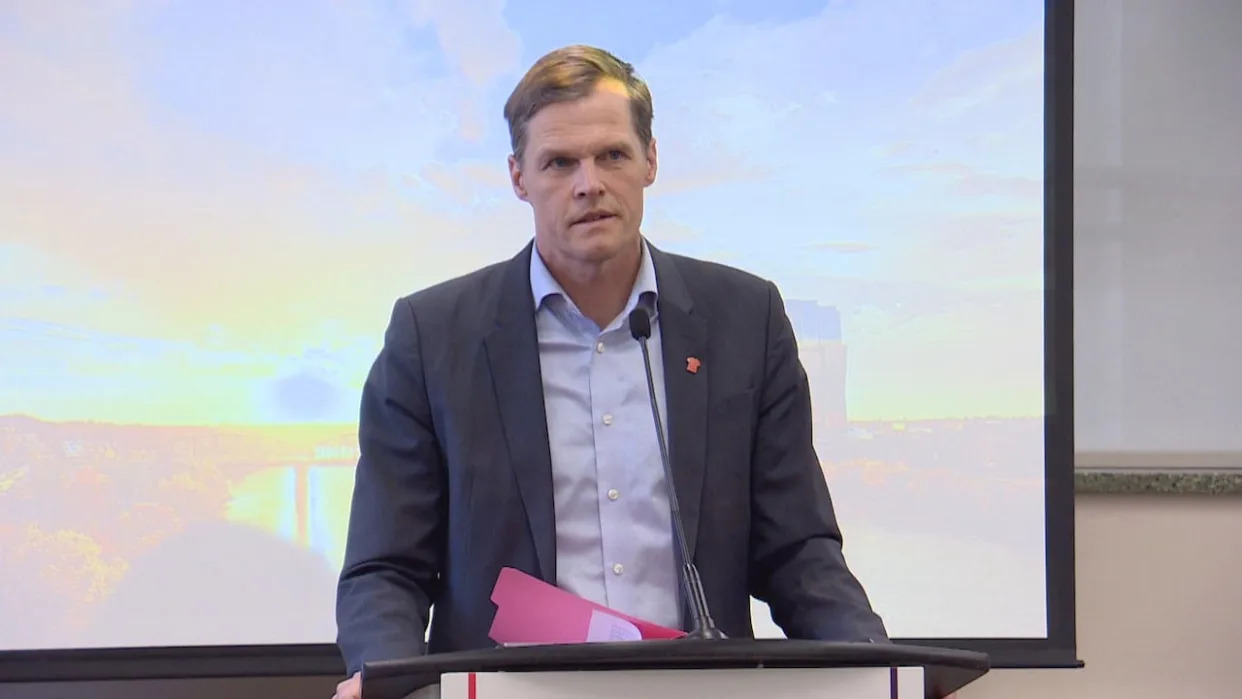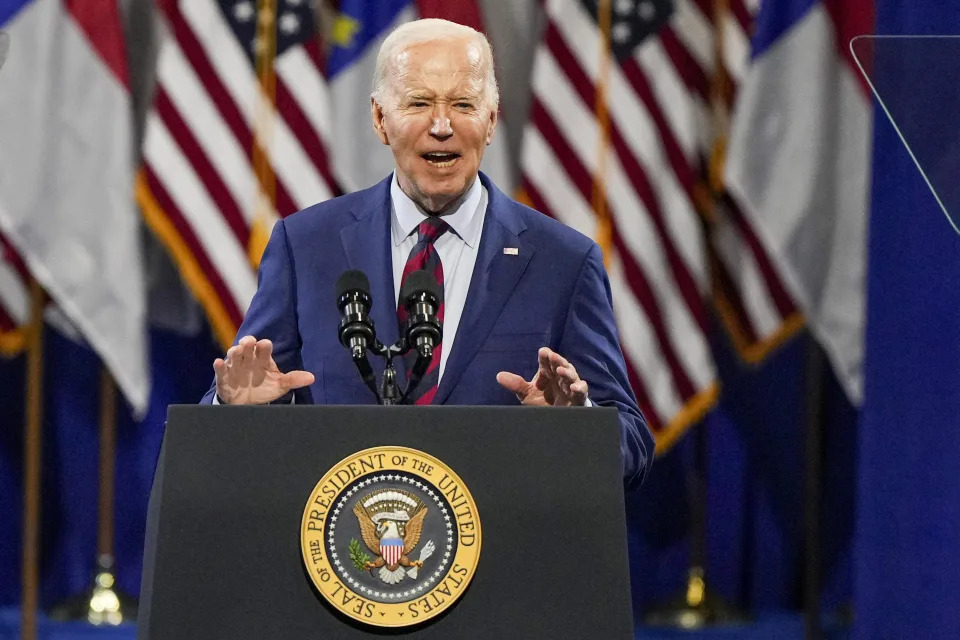Shannon Vavra
Sat, May 11, 2024

Photo Illustration by Thomas Levinson/The Daily Beast/Getty/Twitter
A convicted felon who was locked up in a U.S. prison for money-laundering is pulling the strings behind a sweeping Kremlin influence operation with ties to Russian intelligence, The Daily Beast has learned.
Mira Terada—a 36-year-old Russian national who has also gone by the name Oksana Vovk—was arrested at Helsinki Airport in late 2018, two years after she was implicated in a cocaine-smuggling operation that stretched from Texas to Virginia.
She later pled guilty to money-laundering charges in connection to the drug scheme, and spent more than two years in prison—an experience she later claimed had opened her eyes “to the brutality of the American judicial system, the inhumanity of American prisons and the complete indifference of the so-called liberal American society.”
But her story doesn’t stop there: upon her release and return to Russia in 2021, Terada announced that she had made the decision to head the Foundation for Battling Injustice (FBR), a non-profit established by the infamous boss of Russia’s Wagner Group, Yevgeny Prigozhin. She didn’t reveal who had offered her the position, if anyone.
Prigozhin—who earned the nickname “Putin’s chef” for his catering company, which served the Kremlin—was notorious for his army of private mercenary soldiers. His side gig, however, encompassed running Russian influence operations through organizations like FBR and the Internet Research Agency (IRA), a troll farm that has interfered in U.S. presidential elections.
Putin’s Gangster Reign of Chaos Finally Catches Up to Him
After Prigozhin fell from Vladimir Putin’s good graces, he died in a plane crash last year, in what appeared to be a Kremlin-ordered assassination. Now, Terada—apparently eager to fill the vacuum—has thrust herself into the spotlight, building her own influence empire from the remnants left behind by the mercenary boss.
The blonde ex-convict appears to have milked her felony sentence, capitalizing on her experience in a U.S. prison to run a network of pro-Kremlin propagandists claiming to be advocates for human rights and press freedom.

Yevgeny Prigozhin, the founder of the Russian private security company Wagner, in an unspecified location in Africa on Aug. 21, 2023.
Wagner Account/Anadolu Agency via Getty Images
“I saw the nightmares of the US prison hell, which are diligently hushed up by the world media: torture, bullying of prisoners, the sadism of the jailers and the cold ruthlessness of the American penitentiary system,” she said in a blog post detailing her future ambitions. “I am full of strength and determination to announce that I accept the post of the head and official representative of the Foundation to Battle Injustice.”
In January, Terada convened a group of journalists from around the globe to discuss plans for a new organization allegedly dedicated to helping journalists. She called it the “Brics Journalists Association,” and spoke to her guests for 40 minutes about the group’s mission: to “provide assistance” to journalists from BRICS (the organization comprising Brazil, Russia, India, China, South Africa, Iran, Egypt, Ethiopia, and the United Arab Emirates) as well as reporters from other countries who need “help and support.”
Terada’s operations at both FBR and the new Brics association feature a series of prongs and networks of connected pro-Kremlin individuals, some of whom have previously tried to interfere in American politics, according to U.S. officials. At the heart of the scheme is the distribution of “articles” that push pro-Kremlin narratives and anti-Western diatribes, which are parroted and recirculated by an array of Russian disinformation platforms.
The Daily Beast did not receive responses to comment requests sent to Terada, her former counsel, the FBR, and the Russian embassy for this story. The State Department and the federal attorneys who brought U.S. cases against Terada did not respond by time of publication.
Patrick Warren, Associate Professor in the John E. Walker Department of Economics at Clemson University—who has been studying Russian disinformation—told The Daily Beast that Terada appears to be trying to take up where Prigozhin left off.
This is essentially the “Russian successor organization to Prigozhin’s influence empire,” Warren told The Daily Beast.
Just this week, when the Ukrainian government announced that it had thwarted a Russian-directed plot to assassinate Ukrainian President Volodymr Zelensky, Terada’s network hunkered down on the narrative that Moscow was not responsible.

Ukraine's President Volodymr Zelensky inspects new fortifications for Ukrainian servicemen, in Donetsk region, Ukraine, April 19, 2024.
Ukrainian Presidential Press Service/Reuters
“As expected, Moscow is accused of being behind the attempted attack, but there is no evidence that the Russians participated in the conspiracy. On the other hand, the West seems quite interested in eliminating Zelensky,” one writer said in a piece published at the infobrics.org website.
The post was re-published on multiple Russian disinformation sites that appear to be tied to Terada’s network. One site that featured the post has links to the Russian Main Intelligence Directorate (GRU), according to the State Department. The post was also circulated on a platform connected to Russia’s Federal Security Service (FSB), according to the agency.
Mysterious Fraudsters Are Exploiting the Plot to Kill Zelensky
A source familiar with the matter, who spoke with The Daily Beast on condition of anonymity, said there are signs that staffers and resources that were previously tied to Prigozhin’s IRA—the troll farm notorious for its interference in U.S. politics and the U.S. presidential election in 2016—are now working in Terada’s extended network of Russian shills.
The person familiar and their team have made their assessment with moderate confidence.
Meanwhile, U.S. officials are hunting for Terada’s associates. Terada’s organization, the FBR, has coordinated activities in the past with a mysterious Russian citizen named Aleksandr Viktorovich Ionov, who has been working with the FSB since at least mid-2018, according to U.S. officials. In 2021, Ionov sought to discuss with the FBR the feasibility of supporting a specific candidate in a 2022 gubernatorial election in the United States.
Ionov has also launched an organization that has received funding from a trust created by Russian President Vladimir Putin himself. He worked on Prigozhin’s Project Lakhta, which focused on spreading disinformation online, including through troll farms and fake online personas, according to the U.S. Treasury Department, which has sanctioned him. Terada has called the accusations against Ionov “far-fetched.”
‘Large Amounts of Cocaine’
In her January launch of the Brics Journalists Association, Terada spoke softly and melodically. A video of the virtual conference showed her wearing a whimsical outfit made of white dentelle and mesh. The cream-colored wall in the background made it look as though Terada was surrounded by a glowing halo.
While Terada appears to be seizing the limelight now, her past remains murky.
Terada previously lived in Houston, Texas and owned a Texas-based company called “STYLISH TRAVELER, LLC,” which was believed to launder the drug proceeds, according to court records. U.S. authorities first began looking into Terada in early 2016 as part of an Organized Crime and Drug Enforcement Task Force investigation.
In one incident in November of 2016, she was found in a vehicle that had been used for transporting cocaine, which was hidden in the engine compartment of the car. Terada and another alleged co-conspirator had traveled by car from Houston all the way to Vienna, Virginia, with the cocaine ostensibly concealed.
She was charged with money-laundering and one felony count of conspiracy to distribute 500 grams or more of cocaine, according to court records obtained by The Daily Beast. Investigators alleged that Terada had worked as part of an organization alongside her ex-husband “known to illegally smuggle large amounts of cocaine from the Houston, Texas area for redistribution within the Washington, D.C. region,” the affidavit in her case states. Her ex-husband had provided and received kilos of cocaine for years as part of the operation, according to court records.
Her ex-husband, who did not immediately respond to a comment request from The Daily Beast, has a lengthy criminal rap sheet. It includes felony convictions for voluntary manslaughter while armed, assault with a dangerous weapon, aggravated assault with a deadly weapon, and two convictions for possession of a controlled substance with intent to distribute, according to the Department of Justice.
Terada’s 2018 detainment and extradition from Finland came after U.S. authorities had issued an Interpol warrant for her arrest. The Russian citizen had been on her way from St. Petersburg to Spain when she was caught, according to Sputnik. After her extradition to the United States in June of 2019, Terada was held in the Alexandria Detention Center in Virginia.
Terada—or Vovk, as she was known back then—made a partial guilty plea to conspiracy to commit money-laundering. The court dismissed her other charge, and sentenced her to 30 months in prison.

A memorial for Yevgeny Prigozhin, head of the Wagner mercenary group, and Dmitry Utkin, the group commander, in Moscow, Russia August 29, 2023.
Maxim Shemetov/Reuters
Doing Time
After returning to Russia in 2021, Terada claimed through her organization—the FBR—that the charges against her were “trumped up,” despite the fact that she had pleaded guilty to money-laundering.
Terada’s claim to fame—and apparent effort to build credibility as the head of an organization ostensibly focused on human rights—is about manufacturing a counterweight to the West’s focus on human rights violations in Russia, said Darren Linvill, who is tracking Terada’s organization alongside Warren.
“You know how in the West, we have all kinds of foundations that explore human rights,” Linvill told The Daily Beast. “If you want to create a multipolar world, and your country is guilty of a long list of human rights violations, you might need to start your own foundation that explores human rights violations—but, you know, only the human rights violations that everybody else is committing.”
The FBR, for its part, doesn’t appear to post anything about human rights violations in Russia. It is, however, full of posts and articles on racism and police brutality in the United States, protests in European countries, and anti-NATO and Ukraine perspectives—including one recent piece that claims that western intelligence agencies are behind the largest terrorist attacks of this century.
It’s clear to experts like Linvill, however, that FBR is “just a front organization.”
“They put out a bunch of reports that not very many people ever talk about,” Linvill told The Daily Beast. “It’s just there to look good.”















